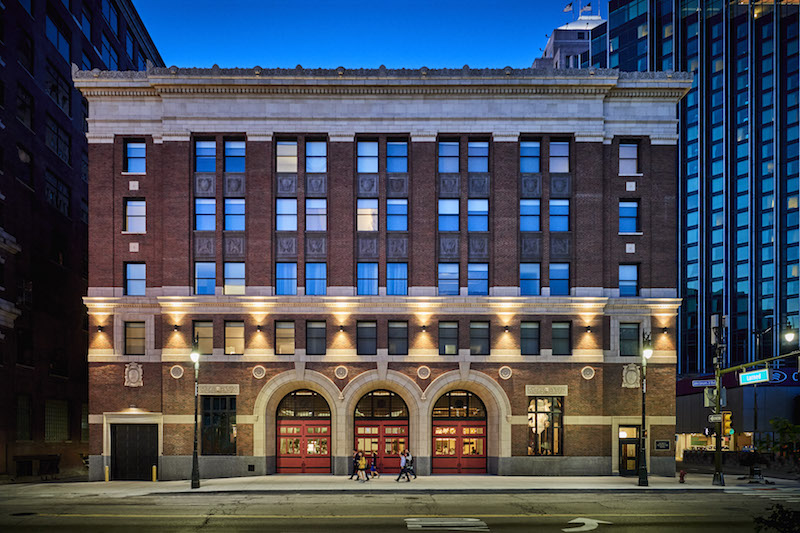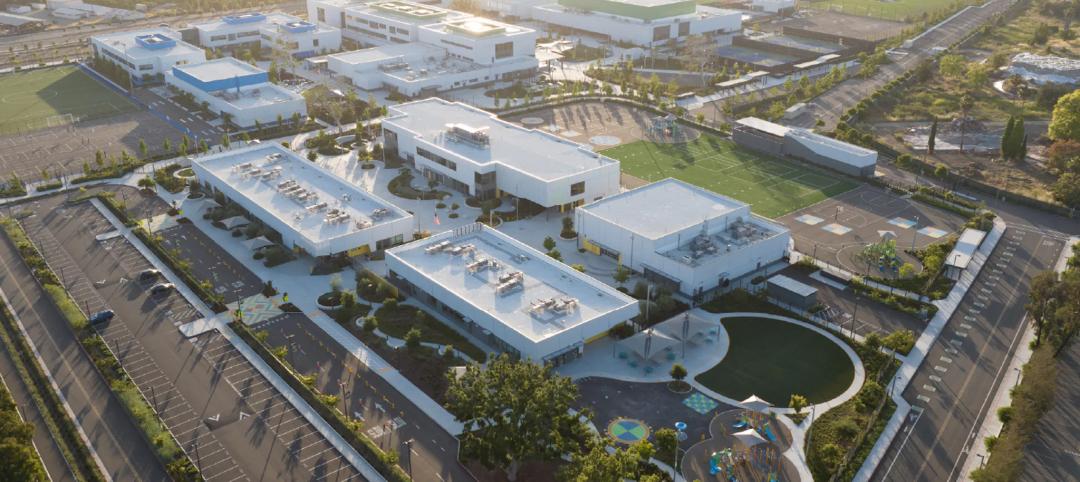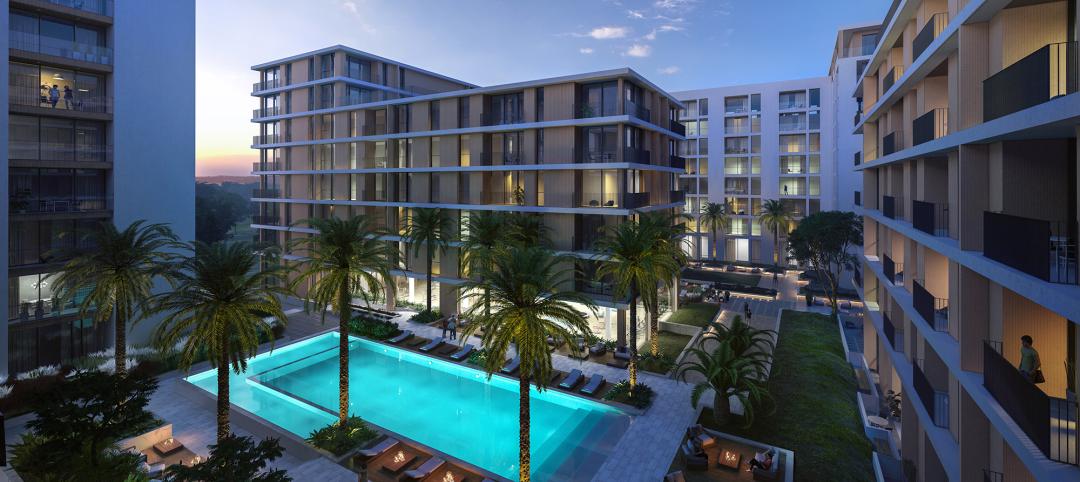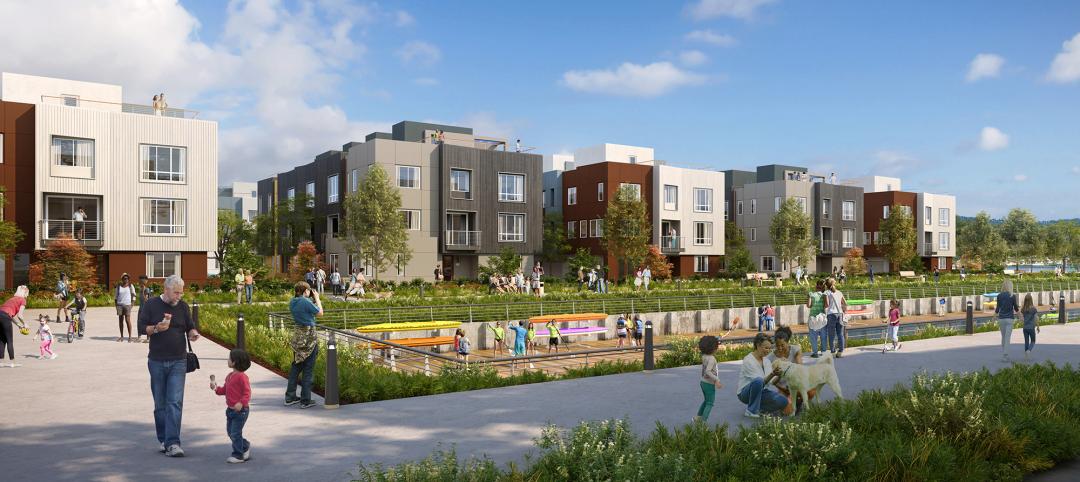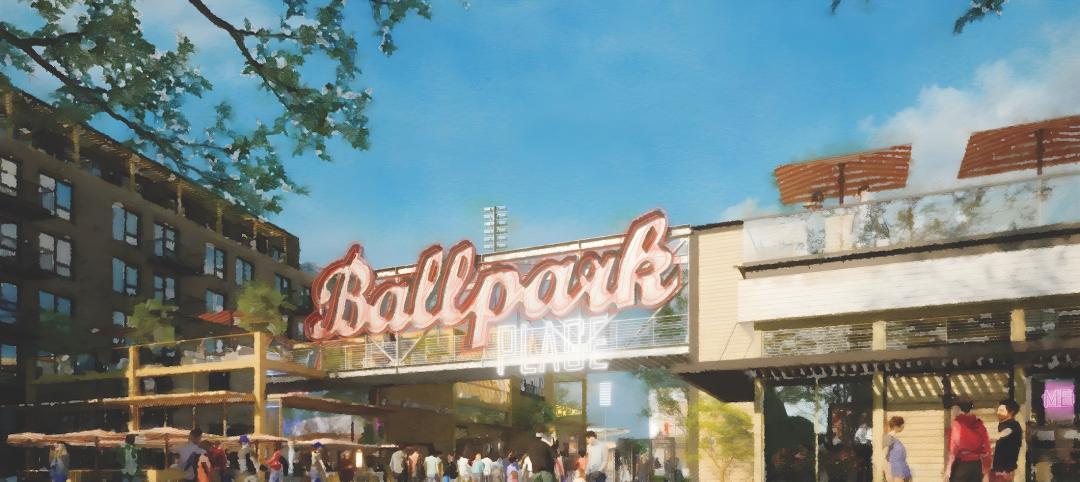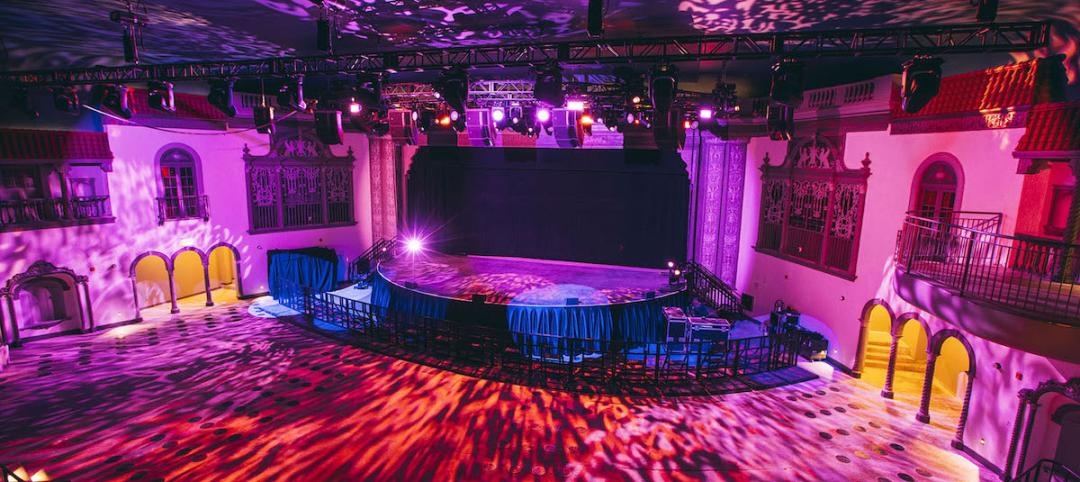The Detroit Foundation Hotel, an adaptive reuse and merging of two historic buildings, has emerged as one of the hotter downtown boutique spots serving the Motor City’s recovery.
The five-story, 100-key hotel, which opened on May 12, recently took home best honors in the Upscale category at the 37th annual Gold Key Awards for Excellence in Hospitality Design.
Detroit-based McIntosh Poris Associates, the lead designer on this $28 million project, converted the former Detroit Fire Department headquarters, which dates back to 1929, and the adjacent Pontchartrain Wine Cellars. Both were historically registered buildings.
The buildings’ existing facades were repaired, restored, or replaced, as were the firehouse’s decorative terra cotta panels with firehouse themes, like busts of firefighters, gryphons at a fire hydrant, and winged serpent-tailed figures flanking a shield proclaiming “DFD.”
The terra cotta-arched entrance of this Neoclassical hotel brings guests into a story-and-a-half space that once housed fire engines. On the first floor is a two-star-rated restaurant called The Apparatus Room and a private dining room
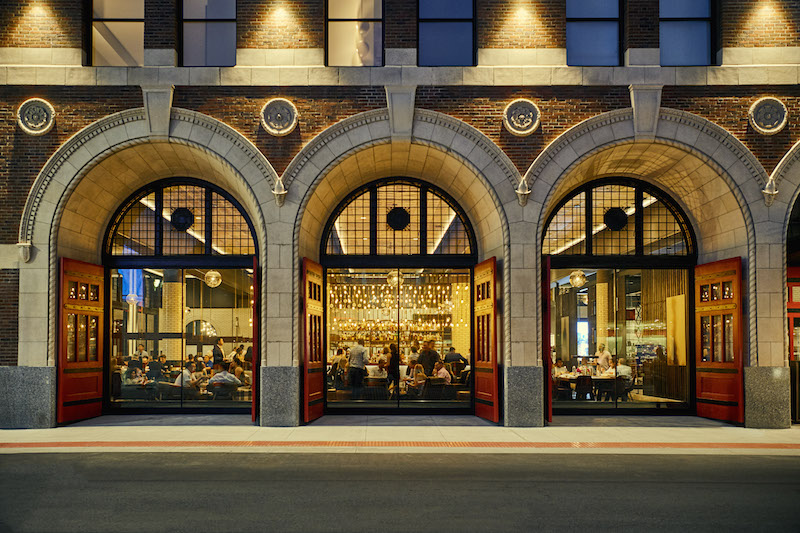 The doors of the old firehouse were restored, and lead guests into a story-and-a-half area that used to contain fire engines and now features a restaurant and private dining room. Image: McIntosh Poris Architects
The doors of the old firehouse were restored, and lead guests into a story-and-a-half area that used to contain fire engines and now features a restaurant and private dining room. Image: McIntosh Poris Architects
Because of to the five-foot floor height difference between the two historic buildings, the architects varied the spaces throughout the hotel with 55 room types. Local artists who took part in the hotel renovation include Detroit Wallpaper Co. and Architectural Salvage Warehouse Detroit, according to the Detroit News.
The hotel’s amenities include complimentary Wi-Fi, a 24-hour fitness center, same-day laundry and dry cleaning, available valet service, complimentary bike rental, and a business center. This month, the high-end regional mall Somerset Collection opened a pop-up, lounge-style retail gallery at the hotel, featuring curated products such as furniture and luxury throws from the mall’s 180 stores.
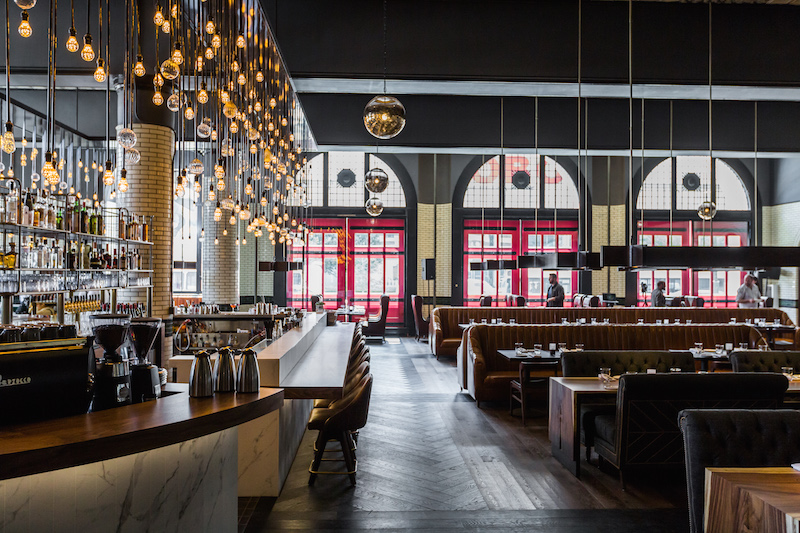 An interior view of The Apparatus, a two-star restaurant on the first floor of the Detroit Foundation Hotel. Image: McIntosh Poris Architects
An interior view of The Apparatus, a two-star restaurant on the first floor of the Detroit Foundation Hotel. Image: McIntosh Poris Architects
The opening of the Detroit Foundation Hotel reflects increasing room demand in line with this metro’s ongoing recovery and economic growth. Next fall, a 130-room Shinola Hotel, which Dan Gilbert’s Bedrock Real Estate is developing, is scheduled to open.
Year-to-date through September 2017, the metro Detroit hotel market posted a 0.4% increase in its occupancy rate and a 5.6% rise in its average daily rate. This resulted in an overall 6% increase in revenue per available room when compared to the same period in 2016.
The Building Team on the Detroit Foundation Hotel project included Aparium Hotel Group (owner), Simeone Deary Design Group (interior design, positioning/graphics, and branding), Sachse Construction (GC), MA Engineering (MEP); Structural Design, Inc. (SE), Giffels Webster (CE traffic engineer); Illuminart (lighting design); Soundscape (acoustical design); Kraemer Design Group (historic preservation consultant); Next Step Design (food service consultant); and Sorbis (low voltage design).
Related Stories
K-12 Schools | May 13, 2024
S.M.A.R.T. campus combines 3 schools on one site
From the start of the design process for Santa Clara Unified School District’s new preK-12 campus, discussions moved beyond brick-and-mortar to focus on envisioning the future of education in Silicon Valley.
Adaptive Reuse | May 9, 2024
Hotels now account for over one-third of adaptive reuse projects
For the first time ever, hotel to apartment conversion projects have overtaken office-to-residential conversions.
MFPRO+ Special Reports | May 6, 2024
Top 10 trends in affordable housing
Among affordable housing developers today, there’s one commonality tying projects together: uncertainty. AEC firms share their latest insights and philosophies on the future of affordable housing in BD+C's 2023 Multifamily Annual Report.
Retail Centers | May 3, 2024
Outside Las Vegas, two unused office buildings will be turned into an open-air retail development
In Henderson, Nev., a city roughly 15 miles southeast of Las Vegas, 100,000 sf of unused office space will be turned into an open-air retail development called The Cliff. The $30 million adaptive reuse development will convert the site’s two office buildings into a destination for retail stores, chef-driven restaurants, and community entertainment.
Adaptive Reuse | Apr 29, 2024
6 characteristics of a successful adaptive reuse conversion
In the continuous battle against housing shortages and the surplus of vacant buildings, developers are turning their attention to the viability of adaptive reuse for their properties.
Mixed-Use | Apr 13, 2024
Former industrial marina gets adaptive reuse treatment
At its core, adaptive reuse is an active reimagining of the built environment in ways that serve the communities who use it. Successful adaptive reuse uncovers the latent potential in a place and uses it to meet people’s present needs.
Mixed-Use | Apr 9, 2024
A surging master-planned community in Utah gets its own entertainment district
Since its construction began two decades ago, Daybreak, the 4,100-acre master-planned community in South Jordan, Utah, has been a catalyst and model for regional growth. The latest addition is a 200-acre mixed-use entertainment district that will serve as a walkable and bikeable neighborhood within the community, anchored by a minor-league baseball park and a cinema/entertainment complex.
Adaptive Reuse | Apr 5, 2024
McHugh Construction completes restoration of Chicago’s historic Ramova Theatre
Adaptive reuse project turns 1929 cinema into a live performance venue, adds a brewery and a taproom, and revives the Ramova Grill in Chicago’s Bridgeport neighborhood.
Adaptive Reuse | Mar 30, 2024
Hotel vs. office: Different challenges in commercial to residential conversions
In the midst of a national housing shortage, developers are examining the viability of commercial to residential conversions as a solution to both problems.
Cultural Facilities | Mar 26, 2024
Renovation restores century-old Brooklyn Paramount Theater to its original use
The renovation of the iconic Brooklyn Paramount Theater restored the building to its original purpose as a movie theater and music performance venue. Long Island University had acquired the venue in the 1960s and repurposed it as the school’s basketball court.


